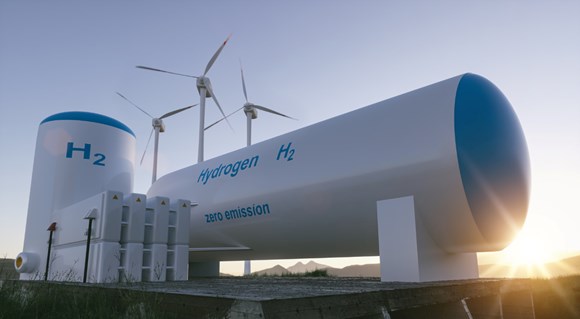Britain’s gas grid companies have today set out their plans to deliver the UK’s first hydrogen town by 2030, in a major new blueprint for building the UK’s hydrogen economy.
Published as part of Energy Networks Association’s Gas Goes Green programme, Britain’s Hydrogen Network Plan sets out the detail of the activity that all five of Britain’s gas network companies (Cadent, National Grid, Northern Gas Network, SGN & Wales & West Utilities) will undertake to turn Britain’s hydrogen ambitions into reality, as set out in the Prime Minister’s November 2020 ’10 Point Plan for A Green Industrial Revolution’.
Between them, the companies are responsible for owning and operating the pipelines and other infrastructure that currently deliver gas to 85% of homes in Great Britain.
Britain’s Hydrogen Network Plan also sets out the work gas network companies will undertake to meet the UK’s other hydrogen objectives, including being ready by 2023 to blend up to 20% hydrogen into local gas grids and to help the UK meet its hydrogen production target of 1GW by 2025 and 5GW by 2030.
It includes how networks will help deliver refuelling facilities for zero emissions heavy good vehicles, and connect the renewables production, carbon capture and storage and hydrogen use for industrial SuperPlaces, helping deliver two clusters by the mid-2020s and two more by 2030.

The Plan sets out how the network companies, responsible for owning and operating £24bn of energy infrastructure, will:
- Ensure the safe delivery of hydrogen through innovation projects. This includes work being undertaken by the Hy4Heat programme (led by BEIS), to test different household appliances and the H21, H100 Fife and HyNTS Future Grid projects.
- Maintain security of energy supply, to ensure gas networks have enough capacity to meet Britain’s energy demands using hydrogen. This includes modelling how gas networks will behave, to ensure that capacity is put in place in the right places and as well as how much hydrogen will be needed.
- Work with people’s needs, to help reduce carbon emissions whilst ensuring that people and businesses have a choice of different low carbon technologies. The Future Billing Methodology and Real Time Networks projects will help ensure consumers continue to receive accurate gas bills, as more hydrogen is introduced to the gas grid.
- Deliver jobs and investment, including through the replacement of old iron mains gas pipes around the country with new, hydrogen-ready pipes instead. By 2032, the companies are planning to have invested £28bn in doing so, in projects around the country.



